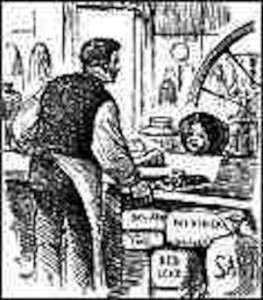The majority of herbal products on the market contain ingredients not listed on the label, with most companies substituting cheaper alternatives and using fillers, according to new research from the University of Guelph.
The study, published today in the open access journal BMC Medicine, used DNA barcoding technology to test 44 herbal products sold by 12  companies. Only two of the companies provided authentic products without substitutions, contaminants or fillers.
companies. Only two of the companies provided authentic products without substitutions, contaminants or fillers.
Overall, nearly 60 per cent of the herbal products contained plant species not listed on the label.
Researchers detected product substitution in 32 per cent of the samples. More than 20 per cent of the products included fillers such as rice, soybeans and wheat not listed on the label.
“Contamination and substitution in herbal products present considerable health risks for consumers,” said lead author Steven Newmaster, an integrative biology professor and botanical director of the Guelph-based Biodiversity Institute of Ontario (BIO), home of the Canadian Centre for DNA Barcoding.
“We found contamination in several products with plants that have known toxicity, side effects and/or negatively interact with other herbs, supplements and medications.”
One product labelled as St. John’s wort contained Senna alexandrina, a plant with laxative properties. It’s not intended for prolonged use, as it can cause chronic diarrhea and liver damage and negatively interacts with immune cells in the colon.
Several herbal products contained Parthenium hysterophorus (feverfew), which can cause swelling and numbness in the mouth, oral ulcers, and nausea. It also reacts with medications metabolized by the liver.
One ginkgo product was contaminated with Juglans nigra (black walnut), which could endanger people with nut allergies.
Unlabelled fillers such as wheat, soybeans and rice are also a concern for people with allergies or who are seeking gluten-free products, Newmaster said.
